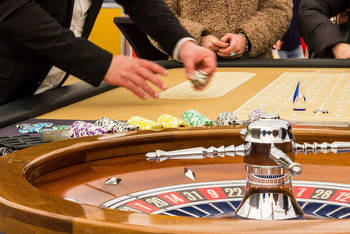VR Technology Changing The Casino Industry

Virtual reality (VR) technology comes as a new phenomenon. It’s leading the way that most people will play games in the future. A report issued in April 2021 from Brandessence Market Research claimed the global VR gaming market would be worth almost $52.7 billion by 2025.
That represents an increase of more than eight times its estimated value in 2018.
The report also indicated that the COVID-19 pandemic created a demand for socialization through virtual gaming. With lower costs for consumers, it’s only a matter of time before the future of the casino industry, like any other field, gets affected by VR.
Is the Casino Industry Growing?
The worldwide casino industry indeed continues to grow. An economic report titled Global Casinos and Gambling Market2021-2025 issued by Infiniti Research (a market research company based in London) predicted worldwide growth of $32.5 billion.
Published in August 2021, the report said the market upturn comes from the legalization and popularity of online gambling.
An earlier report by Global Industry Analysts from May 2021 pegged $123.4 billion as the total value of the global market for casinos in 2020.
By 2027, the market could be worth $159.3 billion.
The report also noted that the:
*U.S. market for casinos was worth $68.9 billion in 2020
*Asia-Pacific market would be worth $36.2 billion by 2027
*Markets in Canada and Europe would grow by 3% – 3.3% between 2020-2027
Also, according to data from the American Gaming Association, Forbes listed $13.6 billion in gambling revenue for the U.S. in the second quarter of 2021.
That total was a record for the industry.
Between 2019-2021, states like Nevada, New Jersey, and Pennsylvania reported revenue growth of 17%, 35.5%, and 44.6%, respectively.
“Mobile sports betting and iGaming … have helped keep the industry afloat…”
Online gambling continues to grow all around the world.
What is a Virtual Reality Casino and How Does It Work?
During the pandemic, many online casinos started to offer live table games. Virtual reality casino games come as a natural transition for the industry.
A VR gaming environment brings a casino to life right from wherever you are. This is already accomplished with a mobile device and an internet connection.
However, VR hardware includes a headset and handheld controllers. For now, the average cost might be prohibitive for worldwide players. A 360-degree simulated environment comes with a price.
But a VR casino offers players the potential to engage in a simulated environment with people from all over the world. The possibilities of a virtual experience could bring online casino games to new heights.
As the world looks to turn the corner on the COVID-19 pandemic, VR remains on the other side. The metaverse acts as a prime example that combines cryptocurrency with social media interactions.
In the casino industry, it’s a matter of which companies want to lead the charge.
As a recent example, MGM Resorts now uses VR technology to allow potential employees to test out positions before hiring. A step in that direction legitimizes a technology that’s only beginning to take root in online gaming culture.
A VR Casino game is available via Oculus, released in January 2018. You might find limited options elsewhere when it comes to playing for real money. The minimum requirements include hefty CPU power as an added barrier.
So, while options seem slim for the time being, the future of VR casinos is only in its infancy.
The Future of Online Casinos With VR
With the coronavirus pandemic, online casinos became the new forebearer of the gambling industry. Along with the legalization of sports betting across the U.S., major media conglomerates in the U.K. partnered with their American counterparts.
As the gambling industry continues to become mainstream, the next logical step derives from popular technology. In less than two decades, Smartphones went from being non-existent to a market share of 90% of the world’s population.
The global VR market is expected to increase from $5 billion in 2021 to over $12 billion by 2024.
An expansion in VR technology allows companies to offer a more enjoyable experience to players. With artificial intelligence (AI), online casinos give gamblers the ability to customize their games. Unique avatars and other personal in-game preferences come as standard.
Customers could get additional security, banking, and support features in a digital VR environment as well.
As large companies enter this market, competition should provide consumers with the best possible options. Apple, Facebook, and Amazon have already initiated VR into their future endeavors.
Options remain limited for VR online casinos. But brick-and-mortar establishments may one day be replaced by the digital world.
Morgan Stanley predicted that the VR hardware market could be valued at $250 billion by 2040.
Online casinos might have to play catch-up in the not-so-distant future.
Conclusion
Right now, VR casinos offer basic options for players. The technology remains in somewhat of a beta phase.
As markets mature, competition will likely drive the industry toward adopting VR. Slots, poker, and blackjack via VR platforms might become commonplace.
For now, online casinos suffice as a new trend among gamblers. But a generational shift remains in the offing. How players interact with VR looks like it might be one of the biggest changes to gambling ever.
It’s a matter of which companies will take the first step and how players respond.
That should define how VR technology revolutionizes the casino industry.





































